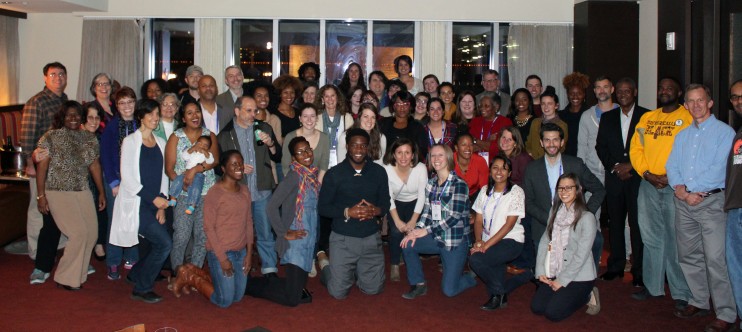
For decades, the Z. Smith Reynolds Foundation has supported racial justice efforts and recognized the work of North Carolina's racial justice leaders. The Foundation also has had a keen interest in increasing racial inclusion among our grantees, primarily by promoting authentic diversity of representation of their staff and board members. The Foundation's grantmaking policies reflect the belief that organizational performance is greatly enhanced when people with different backgrounds and perspectives are engaged in an organization’s activities and decision-making processes.
As many organizations have expanded their work to increase racial diversity and inclusion, the Foundation has sharpened its focus on racial equity as a cross-cutting priority for all of our focus areas. We have come to see that racial equity is a necessary element of a successful path to growth for individuals, organizations, communities, and the entire state.
On November 10-12, 2016, the Z. Smith Reynolds Foundation sponsored 55 individuals from North Carolina to participate in Facing Race: A National Conference, in Atlanta. Participants included some ZSR staff, two ZSR Trustees, a handful of ZSR Community Leadership Council members, ZSR grantees, other nonprofit leaders and government officials. Thirty participants rode a bus down to the conference, stopping in Durham, Raleigh, Winston-Salem, Charlotte and Spartanburg, to pick up folks along the way.
The conference – sponsored by Race Forward – brought together more than 2,300 advocates, nonprofit and philanthropic leaders, elected and government officials, and journalists in an open, inclusive space with the goal of deepening their understanding of racial equity and social justice.
Several themes emerged including, but not limited to: institutional racism; misogyny; and the need to change rhetoric used against immigrants, people of color, women and individuals in the LGBTQ community.
In the end, the broader question that surfaced was how can we unify and coordinate bold, transformative, multiracial movements for racial, gender, economic, and environmental justice to make the biggest impact.
While the election was still fresh on everyone’s minds, the overwhelming message and takeaway was one of hope and optimism.
We asked several of our grantees, and other North Carolina participants who joined us, to reflect on their experience at the conference and share with us actionable steps they are planning to implement within their own organizations based on the knowledge they gained while in Atlanta. Here are some of their responses: